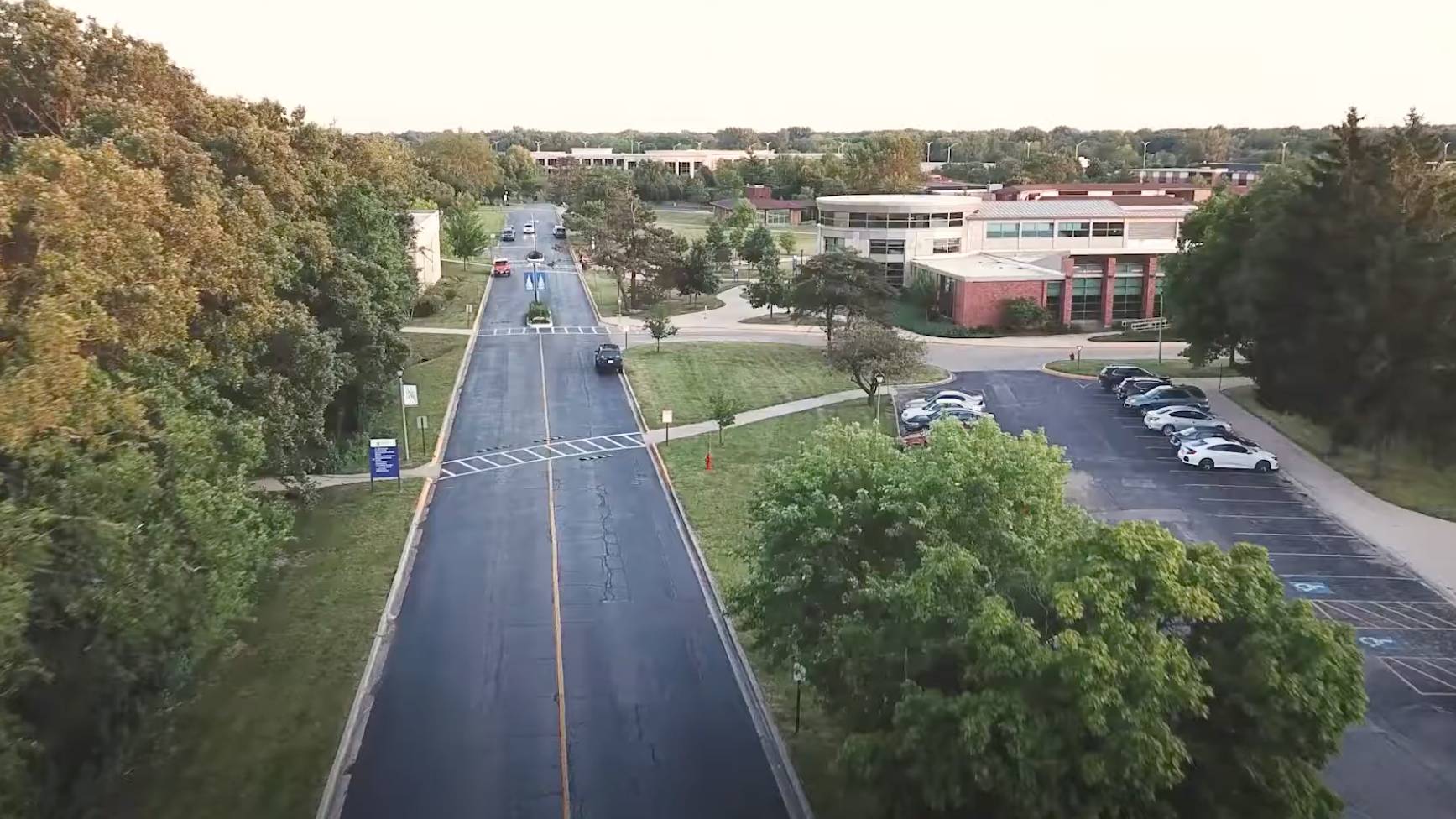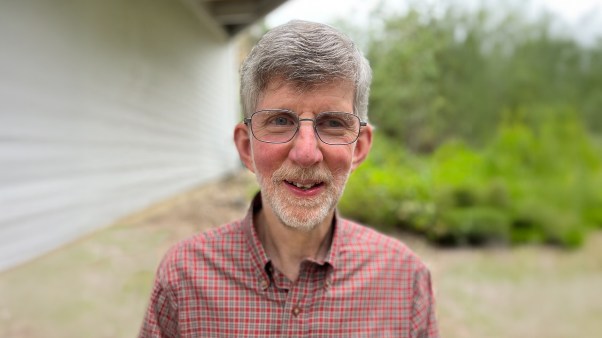When hundreds of college students at Trinity International University (TIU) pack up their dorm rooms at the end of the semester in May, they won’t be coming back to the suburban Chicago campus. Athletes won’t suit up in their white and blue Trojan uniforms anymore. Undergrads won’t get to study together in the library, share meals in the dining hall, or experience other rhythms of campus life.
TIU announced on Friday plans to move its undergraduate program fully online following the end of the semester, among the first Christian colleges to shut down in-person learning as a result of the “new reality” facing higher ed.
“We know this new direction will be unwelcome news for some, but we believe this course of action will enable us to better serve the global church more effectively,” said TIU President Nicholas Perrin and Board of Regents chair Neil Nyberg in a statement announcing the change.
The Deerfield, Illinois, institution—which includes a graduate school and law school in addition to an influential evangelical seminary, Trinity Evangelical Divinity School (TEDS)—will continue to offer in-person education through its divinity school in Illinois and law school in California.
TIU’s media release characterized the discontinuation of its residential undergraduate program as a “transformational strategy” that will “position the University for long-term growth, industry leadership, and continued academic excellence.”
Like higher education institutions across the country, TIU–and its seminary–have seen consistent enrollment declines over the last 20 years. As of last fall, the school had 356 full-time undergrad students on campus.
Friday’s announcement comes almost a year after TEDS cut nearly $1 million in spending since the number of full-time students at the evangelical seminary dropped 44 percent in 20 years. The cut in spending involved the elimination of at least seven faculty positions. At the time, TIU said that budget reduction was the first part of a three-phase process of “creating efficiencies.”
Last year’s cuts and other reductions saved the seminary $920,000 annually, CT reported in April, or about 6 percent of what it spent on operations in the 2021–2022 school year. Spokesman Chris Donato previously stated that the decision was not the result of a catastrophic financial situation, saying TEDS was “taking proactive steps from a position of financial prudence.”
The school has not revealed how many positions will be affected by moving undergrad and grad school programs online; TIU’s website says layoff notices will go out to staff by Wednesday, February 22.
“As Trinity’s president, I also promise that in the midst of this transition we will do everything within our power to aid and assist any of our highly valued staff who are adversely affected by these decisions,” Perrin said.
Donato told CT that going into this school year, the administration didn’t anticipate making the move to end in-person undergrad education at TIU: “It was not apparent until late January 2023 that … enrollment declines were continuing rather than abating.”
Next week, students who want to enroll elsewhere rather than continue their degree online are invited to a transfer fair involving other Christian colleges in the area, such as North Park University and Judson University. They have also been offered counseling services to help process the news.
The challenges in today’s college landscape span across evangelical higher ed and date back to before COVID-19. Sixty-five percent of schools affiliated with the Council for Christian Colleges Universities (CCCU) saw traditional undergraduate enrollment drop between 2014 and 2018. Higher education experts also predict many schools will fall off a “demographic cliff” in 2025 and beyond, as the pool of potential college students shrinks because of declining birthrates.
For those evangelical schools that are experiencing growth, many credit the expansion of their online programs.
Abilene Christian University, affiliated with the Churches of Christ, has seen five consecutive years of enrollment growth and now 32 percent of the school’s nearly 6,000 students are online. Thirty percent of the 1,700 students at Northwestern College, a Dutch Reformed school in Iowa, are online. And at Indiana Wesleyan University, there are three times more students logging on to class on the internet than there are visiting the Marion, Indiana campus.
College presidents and administrators at such schools believe this is one of the best ways to overcome enrollment challenges, while also increasing the availability of Christian education and widening their school’s impact. Critics, on the other hand, say online degrees undercuts quality and worry these programs may diminish a Christian liberal arts education.
Last week’s news hit the TIU community hard, with just three months before the semester ends. Parents of current undergraduate students expressed frustration with the decision to end residential and in-person learning in comments on Facebook; alumni offered their prayers that the shift would allow the school to be more effective, as leaders suggested.
“This abrupt announcement fits a pattern with Perrin’s leadership where cuts and major changes to the curriculum are announced quickly and without sensitivity towards those affected,” said Madison Pierce, one of the two departing professors named publicly last year, who joined Western Theological Seminary. “I continue to pray for my alma mater and its leadership with the hope that it regains its place as a prophetic space within evangelicalism.”
In an email sent to Trinity students on Friday, President Perrin said the move online was part of “remaining laser focused on our ‘why.’” He cited the need to reimagine Trinity’s current paradigm, noting enrollment challenges, economic instability sparked by the pandemic and the rising costs of providing residential education.
“We understand that these decisions, while providing long-term vitality, have significant short-term implications,” Perrin said. “I recognize this letter will not answer all your questions, but we intend to provide additional details in the coming days through regular communications, chapels, special gatherings, and other forums.”
In addition to ending in-person undergraduate education at TIU and moving Trinity College and Trinity Graduate School fully online by fall 2023, the institution also decided to close Camp Timber-lee. The Wisconsin camp has lost $2.8 million since it was given to TIU by the Evangelical Free Church in America in 2016.









